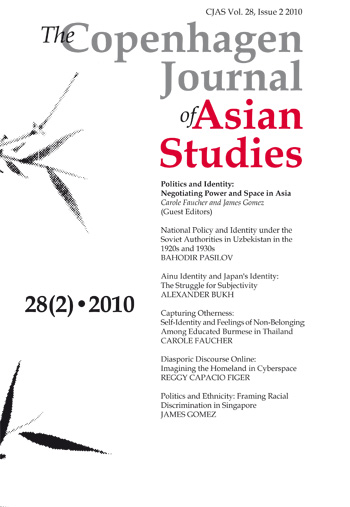Ainu Identity and Japan's Identity: The Struggle for Subjectivity
DOI:
https://doi.org/10.22439/cjas.v28i2.3428Keywords:
Ainu, Japan, identity, indigenous, colonialism, Northern TerritoriesAbstract
This paper seeks to contribute to the academic debate on the contemporary identity of the Ainu. Ainu, the indigenous people of what today constitutes part of northern Japan, as well as the Russian Kurile Islands and parts of the island of Sakhalin, became the first subjects of modernizing Japan's expansion in the second half of the nineteenth century. In general, the Ainu's history, culture, and the struggle for recognition as indigenous people as well as against discrimination in Japan have been subjected to intense academic scrutiny in both English and Japanese. This article, however, aims to shed a different light on the construction of Ainu identity, by locating it within the broader contemporary discourse on Japan's national identity. It argues that the emergence of Ainu subjectivity in the public discourse in the 1970s can be partially attributed to the domestic struggle between the conservative and the progressive camps over the definition of Japan's identity. The paper analyzes both sides of the discourse and examines the role of the Ainu 'other' within this construction. It proceeds further to examine the challenge that the emergence of Ainu subjectivity has posed to Japan's politics, mainly in the context of the 'Northern Territories' dispute. The concluding part briefly examines the policy responses aimed at addressing these challenges.Downloads
Published
2012-01-31
Issue
Section
Articles


